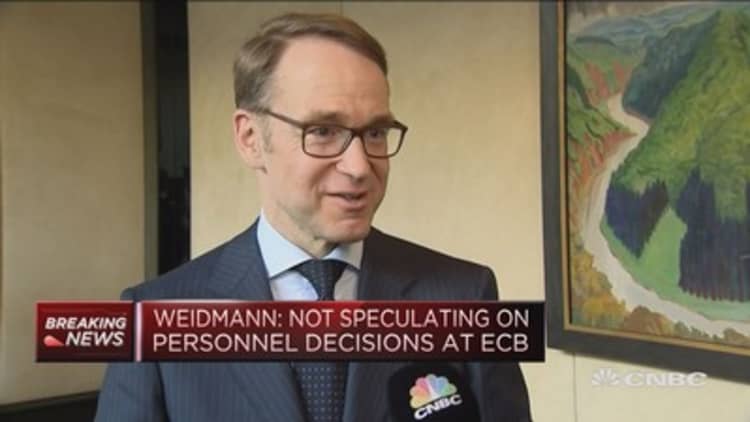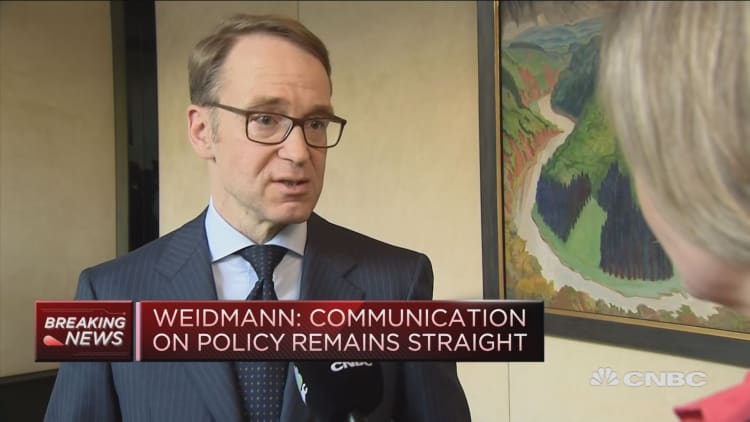
Germany's central bank chief won't rule out the possibility of taking one of the top jobs at the European Central Bank (ECB) next year.
Speaking to CNBC in Frankfurt Tuesday, Bundesbank President Jens Weidmann said: "My position is that all in the Governing Council are of course interested in monetary policy and want to shape monetary policy. That's why we're there … That's why we're discussing together."
Weidmann has long been mentioned as a potential successor to outgoing ECB President Mario Draghi.
The German economist is one of the most vocal members of the ECB's Governing Council and has criticized the slow policy normalization in the euro zone. Last October, for example, Weidmann lambasted the ECB's decision to extend quantitative easing (QE).
However, Weidmann's tendency to be outspoken about the impact of an extended period of monetary stimulus, especially when compared to several of his colleagues, could ultimately hurt his chances of becoming president.
'Too much opposition'
Italian national Mario Draghi is poised to step down from his role as ECB president at the end of October 2019. And while Weidmann is seen by many as one of the contenders to replace him, the fact remains Germany has never held the top post.
Axel Weber, Weidmann's predecessor, was once thought to be in line to become ECB president in 2011 but he resigned to protest the central bank's initial crisis-fighting policies.
"Much has been made in the media of Jens Weidmann's candidacy, but I'm rather skeptical for three reasons," Erik Nielsen, global head of CIB research at UniCredit, said in a note earlier this month.

"I suspect Weidmann's vocal opposition to most of the ECB decisions in recent years has generated too much opposition in too many other member states for him to get the nod," he added.
Meanwhile, the heads of the European Stability Mechanism, the Single Resolution Board and the European Investment Bank are all from Germany. Nielsen from UniCredit also noted that there's already another German in the executive board of the ECB, Sabine Lautenschläger, and she would have to resign if Weidmann were to be appointed, reducing female representation in the top jobs — an issue that has often been raised about the ECB.
At the same time, Carsten Brzeski, chief economist at ING, told CNBC in mid-February that these same reasons hurt the chances of Germany putting Weidmann forward.
"In short, I still think that the game is very open," Brzeski said, but "(Spain's Luis) de Guindos as vice president has clearly increased the chances for a Northern European to succeed Draghi."
The 19 leaders of the euro zone are set to appoint De Guindos, the Spanish economy minister, as the next vice president of the ECB at a summit in March.

